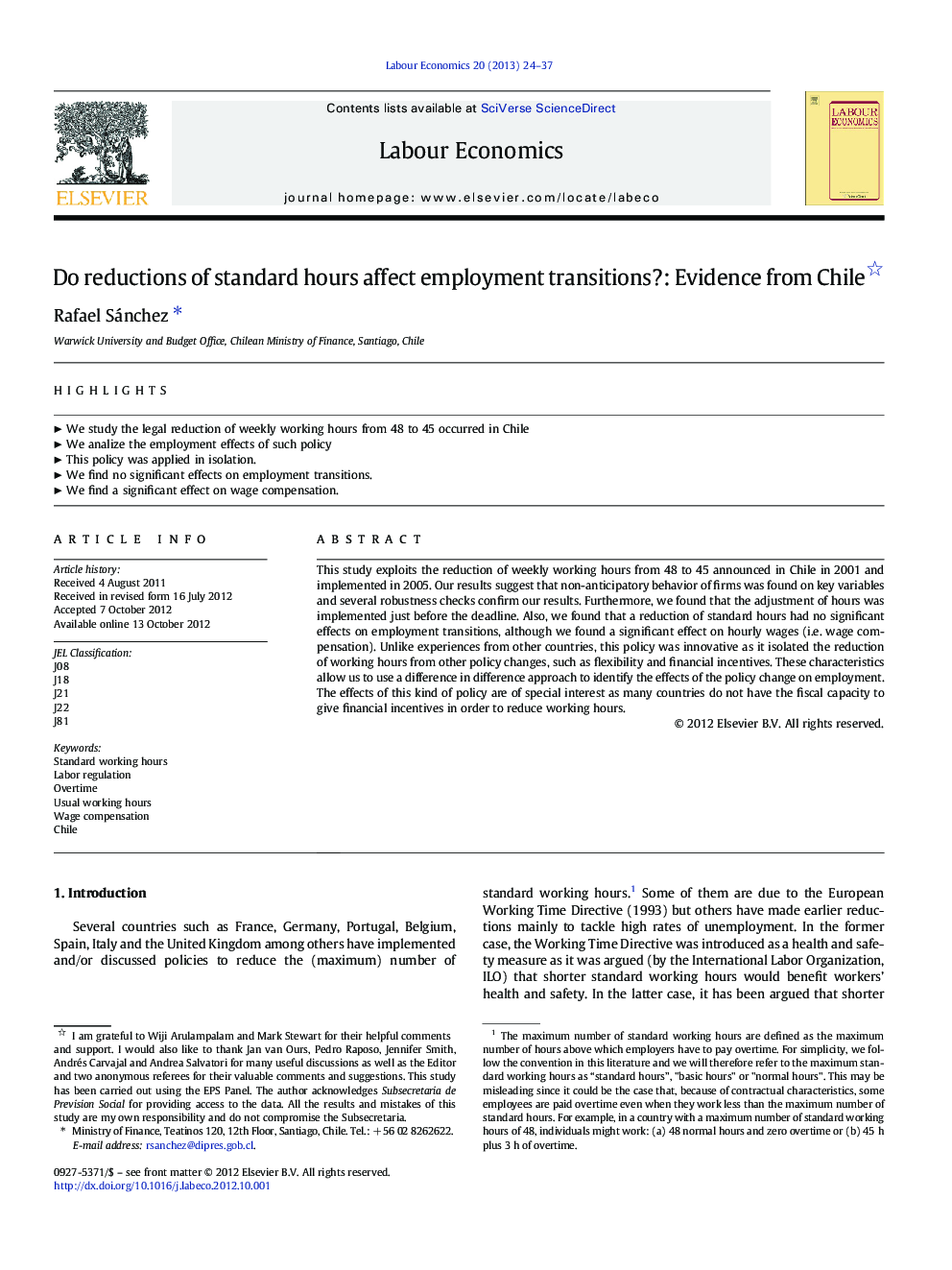| Article ID | Journal | Published Year | Pages | File Type |
|---|---|---|---|---|
| 971509 | Labour Economics | 2013 | 14 Pages |
This study exploits the reduction of weekly working hours from 48 to 45 announced in Chile in 2001 and implemented in 2005. Our results suggest that non-anticipatory behavior of firms was found on key variables and several robustness checks confirm our results. Furthermore, we found that the adjustment of hours was implemented just before the deadline. Also, we found that a reduction of standard hours had no significant effects on employment transitions, although we found a significant effect on hourly wages (i.e. wage compensation). Unlike experiences from other countries, this policy was innovative as it isolated the reduction of working hours from other policy changes, such as flexibility and financial incentives. These characteristics allow us to use a difference in difference approach to identify the effects of the policy change on employment. The effects of this kind of policy are of special interest as many countries do not have the fiscal capacity to give financial incentives in order to reduce working hours.
► We study the legal reduction of weekly working hours from 48 to 45 occurred in Chile ► We analize the employment effects of such policy ► This policy was applied in isolation. ► We find no significant effects on employment transitions. ► We find a significant effect on wage compensation.
